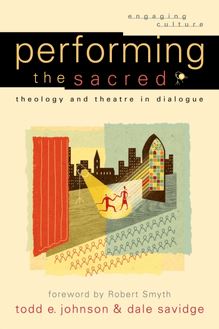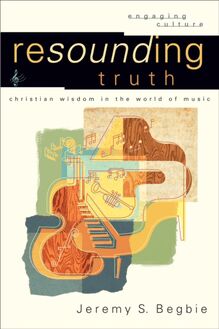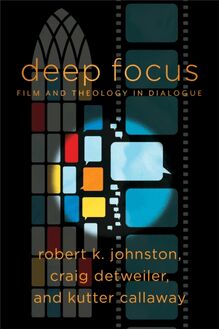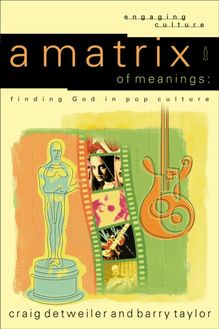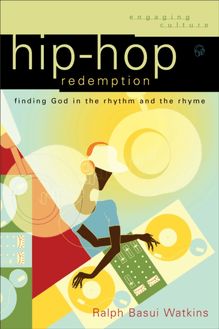Leisure and Spirituality (Engaging Culture) , livre ebook
231
pages
English
Ebooks
2015
Vous pourrez modifier la taille du texte de cet ouvrage
Obtenez un accès à la bibliothèque pour le consulter en ligne En savoir plus
Découvre YouScribe en t'inscrivant gratuitement
Découvre YouScribe en t'inscrivant gratuitement
231
pages
English
Ebooks
2015
Vous pourrez modifier la taille du texte de cet ouvrage
Obtenez un accès à la bibliothèque pour le consulter en ligne En savoir plus
Publié par
Date de parution
10 mars 2015
Nombre de lectures
2
EAN13
9781441245496
Langue
English
Poids de l'ouvrage
3 Mo
Publié par
Date de parution
10 mars 2015
Nombre de lectures
2
EAN13
9781441245496
Langue
English
Poids de l'ouvrage
3 Mo
W ILLIAM A. D YRNESS AND R OBERT K. J OHNSTON , SERIES EDITORS
The Engaging Culture series is designed to help Christians respond with theological discernment to our contemporary culture. Each volume explores particular cultural expressions, seeking to discover God’s presence in the world and to involve readers in sympathetic dialogue and active discipleship. These books encourage neither an uninformed rejection nor an uncritical embrace of culture, but active engagement informed by theological reflection.
© 2015 by Paul Heintzman
Published by Baker Academic
a division of Baker Publishing Group
P.O. Box 6287, Grand Rapids, MI 49516-6287
www . bakeracademic . com
Ebook edition created 2015
All rights reserved. No part of this publication may be reproduced, stored in a retrieval system, or transmitted in any form or by any means—for example, electronic, photocopy, recording—without the prior written permission of the publisher. The only exception is brief quotations in printed reviews.
Library of Congress Cataloging-in-Publication Data is on file at the Library of Congress, Washington, DC.
ISBN 978-1-4412-4549-6
All emphasis in quoted material is from the original.
Unless otherwise indicated, Scripture quotations are from the Holy Bible, Today’s New International Version®. TNIV®. Copyright © 2001, 2005 by Biblica, Inc.™ Used by permission of Zondervan. All rights reserved worldwide. www.zondervan.com
Scripture quotations labeled NEB are from The New English Bible . Copyright © 1961, 1970, 1989 by The Delegates of Oxford University Press and The Syndics of the Cambridge University Press. Reprinted by permission.
Scripture quotations labeled RSV are from the Revised Standard Version of the Bible, copyright 1952 [2nd edition, 1971] by the Division of Christian Education of the National Council of the Churches of Christ in the United States of America. Used by permission. All rights reserved.
The section of chapter 1 titled “Concepts of Leisure” is a revised version of Heintzman, Paul. “Defining Leisure.” In Leisure for Canadians , 2nd ed., edited by Ron McCarville and Kelly McKay, 3–14. State College, PA: Venture, 2013. Used by permission of Venture Publishing.
Figures 2.2 and 2.3 are from Vo, Lam Thuy. “What Americans Actually Do All Day Long, in 2 Graphics.” National Public Radio. August 29, 2012. http://www.npr.org/blogs/money/2012/08/29/160244277/what-americans-actually-do-all-day-long-in-2-graphics . Source: Bureau of Labor Statistics. Credit: Lam Thuy Vo/NPR. Used by permission of National Public Radio.
Chapters 5 and 6 are an expanded and updated version of Heintzman, Paul. “Implications for Leisure from a Review of the Biblical Concepts of Sabbath and Rest.” In Christianity and Leisure: Issues in a Pluralistic Society , rev. ed., edited by Paul Heintzman, Glen E. Van Andel and Thomas L. Visker, 14–31. Sioux Center, IA: Dordt College Press, 2006. Used by permission of Dordt College Press.
The section of chapter 11 titled “The Relationship of Work and Leisure” is a revised version of Heintzman, Paul, “Christian Reflections on the Relationship Between Leisure and Work.” Journal of the Christian Society for Kinesiology and Leisure Studies 2, no. 1 (2012), 33–40. Used by permission of the Christian Society for Kinesiology and Leisure Studies.
The section of Chapter 11 titled “Leisure Ethics” is adapted from a portion of Heintzman, Paul, “Leisure, Ethics and the Golden Rule.” Journal of Applied Recreation Research , 20, no. 3, (1995), 203–222. Used by permission of Taylor & Francis Ltd. www.tandfonline.com
Chapter 13 is a shortened and revised version of Heintzman, Paul, “Leisure-spiritual Coping: A Model for Therapeutic Recreation and Leisure Services.” Therapeutic Recreation Journal 42, no. 1 (2008): 56-73. Used by permission of Sagamore Publishing. http://sagamorejournals.com/trj
Figure 13.1 is from Heintzman, Paul, “Leisure-Spiritual Coping: A Model for Therapeutic Recreation and Leisure Services.” Therapeutic Recreation Journal 42, no. 1 (2008): 59. Used by permission of Sagamore Publishing. http://sagamorejournals.com/trj
Portions of the Epilogue are adapted from Heintzman, Paul, “What We Do for Rest and Enjoyment.” Living the Good Life on God’s Good Earth , edited by David Koetje, 71–77. Grand Rapids: Faith Alive, 2006. Used by permission of Faith Alive Christian Resources.
For my wife Monique and my daughter Jessie
In loving memory of my parents, Margaret and Garnet Heintzman
contents
Cover i
Series Page ii
Title Page iii
Copyright Page iv
Dedication v
List of Illustrations ix
Acknowledgments xi
Introduction xv
Part 1: Leisure in Contemporary Society 1
1. Concepts of Leisure 3
2. Contemporary Leisure Trends and Issues 23
Part 2: The History of the Leisure Concept 55
3. The History of Classical Leisure 57
4. The History of Leisure as Activity 69
Part 3: The Biblical Background to Leisure 81
5. The Sabbath 83
6. The Biblical Concept of Rest 107
7. Other Biblical Words and Themes Related to Leisure 121
Part 4: Leisure and Work 135
8. Work Today and in the Past 137
9. The Biblical View of Work 151
Part 5: Christian Perspectives on Leisure 175
10. A Critique of the Concepts of Leisure 177
11. Leisure, Work, and Ethics 205
Part 6: A Leisurely Spirituality 215
12. Leisure and Spiritual Well-Being 217
13. Leisure-Spiritual Coping 235
Epilogue: A Concise and Illustrated Theology of Leisure 247
Notes 255
Bibliography 293
Index 319
Back Cover 325
illustrations
Figures
1.1 Csikszentmihalyi’s Diagram of the Flow State 16
2.1 Trends in Time Use, Canadian Index of Wellbeing (CIW), and Gross Domestic Product (GDP) from 1994 to 2010 28
2.2 Americans Daily Leisure Time Use 46
2.3 Americans Daily Time Use 47
2.4 Trends in Leisure and Culture, Canadian Index of Wellbeing (CIW), and Gross Domestic Product (GDP) from 1994 to 2010 49
10.1 A Schematic Structure of Affect 183
12.1 Model of Leisure and Spiritual Well-Being 219
13.1 Leisure-Spiritual Coping Model 236
Tables
1.1 Selected Outcomes of Leisure from the Hangzhou Consensus xxi
2.1 Change in Canadians’ Leisure and Culture from 1994 to 2010 48
12.1 Leisure Time Practices to Enhance Spiritual Growth and Development 218
acknowledgments
The majority of this book (introduction through chapter 11) is a revised and expanded version of my master’s thesis titled A Christian Perspective on the Philosophy of Leisure completed under the supervision of Dr. Loren Wilkinson at Regent College in Vancouver. I am profoundly grateful to Loren who is a model of how to think and live Christianly in today’s world, which he demonstrated through his classes, directed readings courses, informal discussion groups, and a multitude of extracurricular activities. In addition, I appreciated his encouragement at key points in the thesis writing process. I am also thankful for all of my professors at Regent College in the areas of biblical studies, biblical languages, theology, spirituality, and interdisciplinary studies, all of whom to some extent informed my thesis. Particularly related to this book, I am deeply indebted to Dr. James Houston who through his courses enriched and expanded my awareness and appreciation of the classics of Christian spirituality, thereby deepening my spiritual life.
Chapters 12 and 13 arise from the social scientific research I have been conducting on leisure and spiritual well-being since completing my PhD thesis titled Leisure and Spiritual Well-Being: A Social Scientific Exploration at the Department of Recreation and Leisure Studies, University of Waterloo. My supervisor, Dr. Roger Mannell, helped me refine and fine-tune my social scientific research skills and pushed me to go beyond exploring the relationship between leisure and spiritual well-being to investigate the processes that link these two phenomena. I’m also appreciative of all the professors in the Department of Recreation and Leisure Studies at the University of Waterloo who enhanced and expanded my understanding of leisure and related phenomena.
There are a number of other people who directly or indirectly influenced my writing of this book. First of all, I am extremely grateful to my parents who nurtured me in the Christian faith. My decision to enroll in Recreology as an undergraduate student at the University of Ottawa was a direct result of attending Inter-Varsity Christian Fellowship’s Urbana Missions Conference during my last year of high school. Throughout my undergraduate education and in various ways since then, Inter-Varsity Christian Fellowship’s emphasis upon “all truth is in Christ” has led me to try and understand leisure from a Christian perspective.
As an undergraduate student at the University of Ottawa I had an excellent introduction to leisure studies through the teaching of Tom Goodale, Claude Cousineau, Peter Witt, Cor Westland, Ted Storey, Jack Wright, Roger Dion, Francis Bregha, Irene Spry, Claude Moulin, and Andrée Charbonneau. In relation to this book, the course Leisure Concepts and Values taught by Roger Dion was of considerable influence. The textbook for this course was James Murphy’s Concepts of Leisure: Philosophical Implications , which provided an excellent introduction to the understandings of leisure at that time. One assignment in this course was to write a review of a journal article or a book related to the philosophy of leisure. This assignment provided me with the opportunity to read my first book on leisure from a Christian perspective: Gordon Dahl’s Work, Play and Worship in a Leisure-Oriented Society . For the past decade as a professor of leisure studies at the University of Ottawa, I have had the privilege of teaching this same Leisure Concepts and Values course, which has provided me with the opportunity to regularly reflect on leisure concepts and to keep up-to-date on the latest writing on this topic.
I am deeply grateful for Dr. Glen Van Andel, Professor Emeritus of Recreation at C





